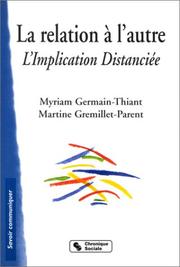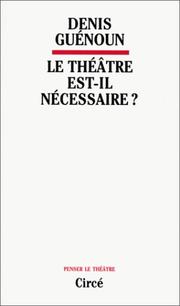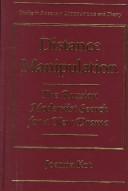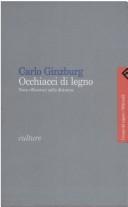| Listing 1 - 10 of 11 | << page >> |
Sort by
|
Book
Abstract | Keywords | Export | Availability | Bookmark
 Loading...
Loading...Choose an application
- Reference Manager
- EndNote
- RefWorks (Direct export to RefWorks)
Book
Year: 2020 Publisher: Florence : Firenze University Press,
Abstract | Keywords | Export | Availability | Bookmark
 Loading...
Loading...Choose an application
- Reference Manager
- EndNote
- RefWorks (Direct export to RefWorks)
The careers of the Curial secretaries Poggio Bracciolini (1380-1459) and Leon Battista Alberti (1404-1472) reveal many parallels. In 1437-1438 the Este court of Ferrara, where Eugenius IV convoked a church council, provided a focal point for their friendship. It was to the Ferrarese canon Francesco Marescalchi that Poggio dedicated Book 1 of his Latin epistles (1436), and Alberti his Hundred Apologues (1437). Both men were inspired to critiques of contemporary society by the Greek satirist Lucian, and both indulged in composing brief witticisms that expose human vice: Poggio in his Facetiae (Jests) and Alberti in his Apologi (Fables) and Vita (Autobiography). From Lucian, they also learned to dramatize human foibles on the imagined stage of the theatrum mundi, or theater of the world: Poggio in his dialogues, and Alberti in both the Intercenales and Momus. Despite such literary affinities, their approach to ethical questions differed, especially concerning the validity of allegory, which Poggio rejected but Alberti embraced. As a tribute to his colleague, Alberti dedicated Book 4 of his Intercenales to Poggio; he prefaced the work with an ironic Aesopic fable that asserts the superiority of recondite scientific research over commonplace humanistic studies. Eventually, Alberti's status as an outsider in Florence was reflected in the deterioration in his relations with Poggio. The rift was widened in 1441, when Alberti organized the Italian poetic competition called the Certame Coronario that was held in the Florence cathedral on October 22. Poggio was a member of the jury that, to Alberti's chagrin, refused to declare a winner.
Book
Year: 2020 Publisher: Florence : Firenze University Press,
Abstract | Keywords | Export | Availability | Bookmark
 Loading...
Loading...Choose an application
- Reference Manager
- EndNote
- RefWorks (Direct export to RefWorks)
The careers of the Curial secretaries Poggio Bracciolini (1380-1459) and Leon Battista Alberti (1404-1472) reveal many parallels. In 1437-1438 the Este court of Ferrara, where Eugenius IV convoked a church council, provided a focal point for their friendship. It was to the Ferrarese canon Francesco Marescalchi that Poggio dedicated Book 1 of his Latin epistles (1436), and Alberti his Hundred Apologues (1437). Both men were inspired to critiques of contemporary society by the Greek satirist Lucian, and both indulged in composing brief witticisms that expose human vice: Poggio in his Facetiae (Jests) and Alberti in his Apologi (Fables) and Vita (Autobiography). From Lucian, they also learned to dramatize human foibles on the imagined stage of the theatrum mundi, or theater of the world: Poggio in his dialogues, and Alberti in both the Intercenales and Momus. Despite such literary affinities, their approach to ethical questions differed, especially concerning the validity of allegory, which Poggio rejected but Alberti embraced. As a tribute to his colleague, Alberti dedicated Book 4 of his Intercenales to Poggio; he prefaced the work with an ironic Aesopic fable that asserts the superiority of recondite scientific research over commonplace humanistic studies. Eventually, Alberti's status as an outsider in Florence was reflected in the deterioration in his relations with Poggio. The rift was widened in 1441, when Alberti organized the Italian poetic competition called the Certame Coronario that was held in the Florence cathedral on October 22. Poggio was a member of the jury that, to Alberti's chagrin, refused to declare a winner.
Book
ISBN: 1283250519 9786613250513 9401200858 9789401200851 9781283250511 6613250511 9789042033917 9042033916 Year: 2011 Publisher: Amsterdam : Editions Rodopi,
Abstract | Keywords | Export | Availability | Bookmark
 Loading...
Loading...Choose an application
- Reference Manager
- EndNote
- RefWorks (Direct export to RefWorks)
This book argues that the irreducible singularity of each person as a psychical subject implies the privacy of the psychical and that of experience, and yet the private accessibility of each person to his or her mind is compatible with interpersonal communication and understanding. The book treats these major issues against the background of the author’s original metaphysics—panenmentalism.

ISBN: 2850084492 9782850084492 Year: 2002 Publisher: Lyon : Chronique Sociale,
Abstract | Keywords | Export | Availability | Bookmark
 Loading...
Loading...Choose an application
- Reference Manager
- EndNote
- RefWorks (Direct export to RefWorks)
Une communication réussie implique la capacité à s'impliquer dans la relation mais également à prendre ses distances en permanence. Cet ouvrage apporte des éléments pour acquérir cette démarche comportementale.
Communication. --- Interpersonal communication. --- Aesthetic distance. --- Communication --- Communication interpersonnelle --- Distanciation

ISBN: 2842420233 9782842420239 Year: 2002 Publisher: CIRCE,
Abstract | Keywords | Export | Availability | Bookmark
 Loading...
Loading...Choose an application
- Reference Manager
- EndNote
- RefWorks (Direct export to RefWorks)
Aesthetic distance --- Distanciation --- Theater --- Philosophy --- Philosophy. --- Acting --- Théâtre --- Art dramatique --- Philosophie --- Theater - Philosophy

ISBN: 0810116545 Year: 1999 Publisher: Evanston, Ill. Northwestern University Press
Abstract | Keywords | Export | Availability | Bookmark
 Loading...
Loading...Choose an application
- Reference Manager
- EndNote
- RefWorks (Direct export to RefWorks)
Russian literature --- Drama --- anno 1900-1999 --- Aesthetic distance. --- Modernism (Literature) --- Russian drama --- History and criticism. --- History and criticism

ISBN: 8807102374 Year: 1998 Publisher: Milano Feltrinelli
Abstract | Keywords | Export | Availability | Bookmark
 Loading...
Loading...Choose an application
- Reference Manager
- EndNote
- RefWorks (Direct export to RefWorks)
Distances --- Space and time --- History --- Espace et temps --- Histoire --- Philosophy --- Philosophie --- Aesthetic distance --- Culture --- Perspective (Philosophy) --- #GOSA:V.Alg.M --- Psychic distance --- Psychical distance --- Ontology
Book
ISBN: 9780226762760 Year: 2011 Publisher: Chicago University of Chicago Press
Abstract | Keywords | Export | Availability | Bookmark
 Loading...
Loading...Choose an application
- Reference Manager
- EndNote
- RefWorks (Direct export to RefWorks)
From the fundamental rights proclaimed in the American and French declarations of independence to the 1948 Universal Declaration of Human Rights and Hannah Arendt’s furious critiques, the definition of what it means to be human has been hotly debated. But the history of human rights—and their abuses—is also a richly illustrated one. Following this picture trail, Human Rights In Camera takes an innovative approach by examining the visual images that have accompanied human rights struggles and the passionate responses people have had to them. Sharon Sliwinski considers a series of historical events, including the 1755 Lisbon earthquake and the Holocaust, to illustrate that universal human rights have come to be imagined through aesthetic experience. The circulation of images of distant events, she argues, forms a virtual community between spectators and generates a sense of shared humanity. Joining a growing body of scholarship about the cultural forces at work in the construction of human rights, Human Rights In Camera is a novel take on this potent political ideal.
Aesthetic distance --- Atrocities --- Disasters --- Human rights --- Mass media and public opinion --- Spectators --- Moral and ethical aspects --- Press coverage --- Moral and ethical aspects --- Press coverage --- Moral and ethical aspects --- Public opinion --- Attitudes
Book
ISBN: 9782296013551 2296013554 Year: 2006 Publisher: Paris : L'Harmattan,
Abstract | Keywords | Export | Availability | Bookmark
 Loading...
Loading...Choose an application
- Reference Manager
- EndNote
- RefWorks (Direct export to RefWorks)
Enfin un ouvrage qui apporte une nouvelle et réelle compréhension de deux grands théoriciens, metteurs en scène et pédagogues du théâtre moderne : Stanilavski et Brecht. Ces derniers furent opposés systématiquement l'un à l'autre, au cours de ces soixante dernières années, à l'aide du schématisme célèbre : l'identification pour l'un, la distanciation pour l'autre. L'auteur, par son analyse pertinente de l'oeuvre de son maître Eugênio Kusnet a mis en évidence que l'identification et la distanciation ne sont pas nécessairement deux notions antagonistes, notamment en ce qui concerne le jeu de l'acteur.
Method (Acting) --- Aesthetic distance --- Acting --- Méthode (Art dramatique) --- Distanciation --- Art dramatique --- Kusnet, Eugênio, 1898-1975 --- Brecht, Bertolt, --- Stanislavsky, Konstantin, --- Brecht, Bertolt, - 1898-1956 --- Stanislavsky, Konstantin, - 1863-1938 --- Kusnet, Eugênio, - 1898-1975 --- Distanciation (esthétique) --- Théâtre --- Pratique. --- Étude et enseignement. --- Kusnet, Eugênio, --- Brecht, Bertolt --- Stanislavskij, Konstantin Sergeevič --- Esthétique --- Esthétique. --- Étude et enseignement
| Listing 1 - 10 of 11 | << page >> |
Sort by
|

 Search
Search Feedback
Feedback About
About Help
Help News
News